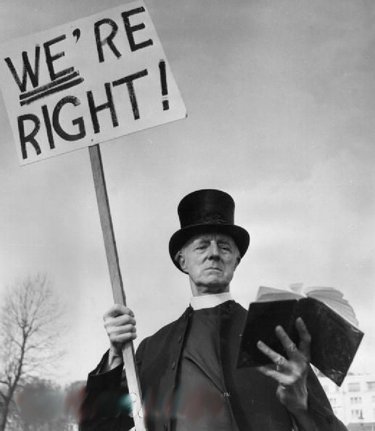In the American Conservative, Robert W. Merry has a thoughtful essay contrasting the original American WASP elite with its contemporary successors.
Today we look back on that old elite, if we look back on it at all, as a relic of the distant past. But this development—the old elite’s slow loss of self-confidence after World War II and then its obliteration as a cultural force—represents a profound transformation in America’s social history. What emerged was a new country with a new elite.
In place of the old-school folkways and legends and values of the Anglo-Saxons, we have what is known as a meritocratic system dominated by a class of strivers who have managed to scope out the new system and rise to the top. …
[A]s far back as 1995, social commentator Christopher Lasch, in a book entitled The Revolt of the Elites and the Betrayal of Democracy (published posthumously), excoriated what he called America’s “new aristocracy of brains.†He wrote: “There has always been a privileged class, even in America, but it has never been so dangerously isolated from its surroundings.†He foresaw an emerging chasm between the country’s new upper class and its great mass of citizens. “The new elites,†he wrote, “are in revolt against ‘Middle America,’ as they imagine it: a nation technologically backward, politically reactionary, repressive in its sexual morality, middlebrow in its tastes, smug and complacent, dull and dowdy. 
America’s Anglo-Saxon elite both reflected and perpetuated Anglo-Saxon sensibilities on the Continent for some 300 years. And it did so as its proportion of the country’s population declined steadily throughout that period. Given that, [Benjamin] Schwarz [in “The Diversity Myth,” published in The Atlantic in 1995] suggests that the American elite’s ability to “dominate American cultural and political life for three centuries—…in fact define what it meant to be an American—is a remarkable achievement.†It was an achievement of cultural identity and pride.
It couldn’t last forever. The question was—and remains—why. Alsop speculated that a significant factor was the decline of Great Britain as a global power, which undermined a significant element of the elite’s sense of identity. He surmised that the “erosion of authority†that transformed American society in a host of ways in the 1960s (and later the 1970s) may have been a factor as well. But probably the largest contributor was demographics. America was becoming less and less an Anglo-Saxon country, and less and less did it look to its old elite for guidance and governance. New impulses, attitudes, and agendas—precisely what Theodore Roosevelt had warned against—were making their way into the American consciousness with more diverse waves of immigration, and these had a profound effect upon the nation. …
[In terms] of what’s going on in America today. Christopher Lasch got closer to the heart of it in The Revolt of the Elites. To Lasch the problem doesn’t reside simply in the distribution of wealth or income, although these are not insignificant. It goes much deeper, far into the civic consciousness of the elite and the nation at large. The destructive nature of the new elite, by his reckoning, touches on profound questions of who we are, where we are going as a nation and society, and how we reconcile our present with our past and our future.
Like Stewart, Lasch sees major civic problems festering in America under the new elite. He views many of them, though not all, as economic in nature. And he believes that the new elites, in pursuing their positions of economic and social privilege, have ignored the fate of those below. “Elites, who define the issues, have lost touch with the people,†he writes.
But he goes further, painting a picture of an elite that harbors little sentiment of noblesse oblige toward the common people; that has little regard for democratic ideals; that favors globalism over patriotism; that accepts assaults on free speech in the academy; that sneeringly assaults the national heritage and the foundations of Western thought; that promotes a politics of diversity and a preoccupation with “self-esteem†(tied to identity politics) to the detriment of civic harmony; that fosters civic rancor through its open borders advocacy; and that employs powerful weapon-words such as “racist,†“sexist,†and “xenophobic†to stifle debate on matters it wants handled out of established halls of discourse.
In short, Lasch portrays an elite that has cut itself off from its own nation and civilization. He invokes Jose Ortega y Gasset’s famous book from the 1930s, The Revolt of the Masses, written in the era of the Bolshevik Revolution and the rise of European fascism. Ortega saw the Western crisis of that time as a product of the “political domination of the masses…the spoiled child of human history.†Now the spoiled child, says Lasch, is the new elite.
“Today,†he writes, “it is the elites, however—those who control the international flow of money and information, preside over philanthropic foundations and institutions of higher learning, manage the instruments of cultural production and thus set the terms of public debate—that have lost faith in the values, or what remains of them, of the West.†Indeed, he adds that for many of these people the very term “Western civilization†now “calls to mind an organized system of domination designed to enforce conformity to bourgeois values and to keep the victims of patriarchal oppression—women, children, homosexuals, people of color—in a permanent state of subjection.â€






Please Leave a Comment!